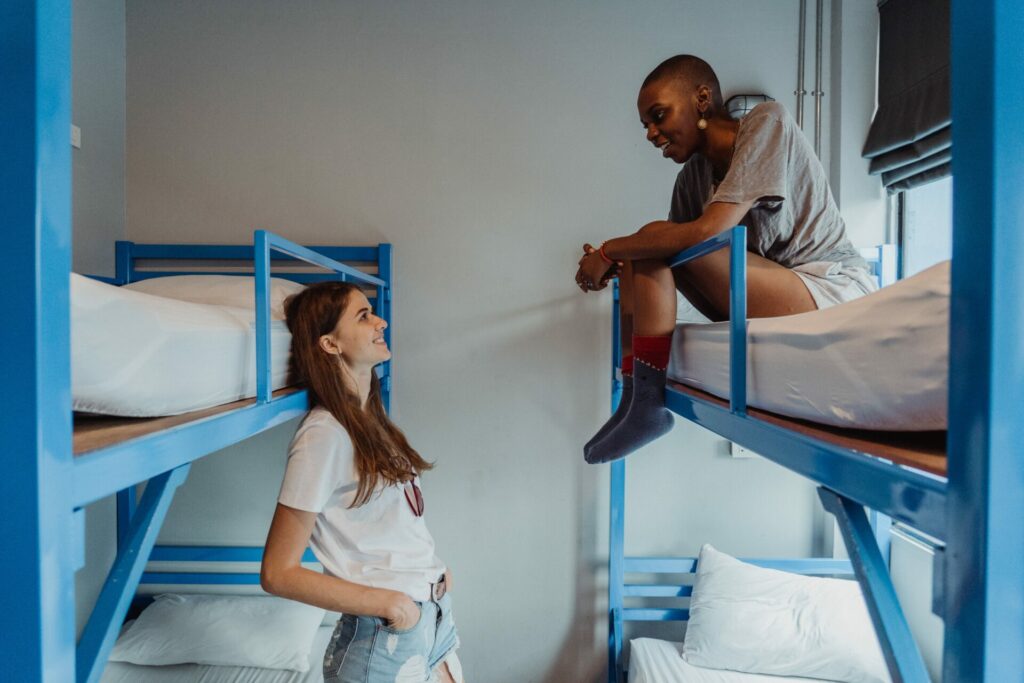Youth hostels are making an impressive comeback in Belgium, with more than four million overnight stays recorded in 2022 and almost matching pre-pandemic figures from 2019, according to data from the Belgian statistical office Statbel.
Despite a noticeable decline in visitor numbers in Brussels, the Covid-19 crisis has not managed to quash the sector entirely. Youth hostels are adapting to the changing times, offering competitive prices and an array of modern amenities, emphasising comfort, connectivity, privacy and sustainability to secure their place in the travel industry.
The cost-effectiveness of youth hostels plays a pivotal role in their success. However, Luc Mesuere, the General Manager of the network of Youth Hostels in Wallonia and Brussels (ADJ), does acknowledge some inevitable price increases. "When demand is high, we review the rates. But even when we're not the cheapest option, we remain the most compelling choice," he told Le Soir.
Regional disparities
Belgium's youth hostel landscape reveals a notable regional disparity. In Brussels, for instance, overnight stays dropped from 322,000 in 2019 to 175,000 in 2022, marking a 46% decrease, while Wallonia saw a substantial increase in youth hostel visitors. "The recovery of post-Covid tourist traffic in major cities [...] is slow," ULB geography professor Jean-Michel Decroly told Le Soir.
Statbel notes that among the six million overnight stays recorded by Belgian tourist accommodations in July 2023, the majority occurred in hotels (33%), followed by holiday cottages, apartments, and furnished holiday accommodations (19%), and youth hostels (19%).
To stay competitive in an evolving landscape, youth hostels are embracing modernity and enhancing guest experiences. "Hostels classified as social tourism face competition from private hotels offering similar conditions and services, albeit at a slightly higher cost," Decroly explained.
Consequently, the Belgian youth hostel network has undergone a transformation. "Free, reliable Wi-Fi is essential," Brussels Minister-President Rudi Vervoort noted, as well as "integrated private toilets per room, adequate lighting, and access to conventional and USB sockets per bed."
A preference for privacy
The facilities cater to the growing need for independence and privacy among users. "You're not very comfortable when partygoers come in at 04:00 and wake you up," Mesuere commented. The rising standard of living has influenced the transformation of youth hostels, with features such as curtains, capsule beds, and private rooms becoming commonplace.
While the spirit of community life persists, the format has evolved. "Before, people were involved in household chores. They were collective moments. Now, staff take care of the rooms and cleaning," said Mesuere.
Decroly added that the original social objectives of hostels have diminished over time: "In the 1960s, hostels were a tool for the emancipation of European youth. Now, users mainly choose them for affordability and a sufficient level of comfort."
Related News
- Belgium presents Winter Plan: Extra shelter via campsites, youth hostels and containers
- Belgium's tourism hits record high with 51 million overnight stays
To maintain social connections, youth hostels offer communal spaces and organise activities. They cater to a diverse clientele, including digital nomads, families, friends and solo travellers. For solo female travellers, booking a single-sex room often provides a sense of security and tranquillity.
Youth hostels are also taking steps to address environmental concerns. The ADJ network has implemented sustainability measures, including timed lighting and showers, rainwater collection and pressure reducers. These efforts align with the green key label, promoting responsible consumption.
In the spring of 2025, an 11th youth hostel near Place Sainte-Catherine in Brussels is expected to join the network, with 182 beds and a brasserie restaurant. The new hostel has been under construction since January, and demonstrates the sector's commitment to adapt in changing times.

